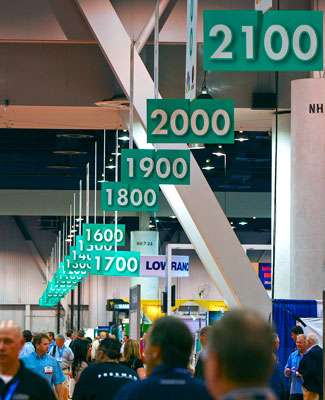
LAS VEGAS — Global economist Michael Colopy, speaking at the ICAST show in Las Vegas this morning, said that U.S. companies depending on China for production may see new challenges in the next two years as the aging leadership in the giant nation is replaced.
“There is upward pressure on labor costs as workers are becoming more aggressive in seeking higher pay and more benefits,” said Colopy. “There have been slow-downs and sit-downs and even sabotage in a few cases, and this could spread without changes.”
He said that political stability of the Far East might also be a concern under new leadership.
“China has long claimed rights to the seas off Viet Nam and the Philippines, and Viet Nam, in particular, is not backing down to their claims,” said Colopy. “And in China, there’s rising nationalism. Conflict anywhere in that part of the world could have a huge impact on billions in U.S. manufacturing.”
He also said that the remarkably rapid rise of an enormous middle class, leaping in a single generation out of poverty, will cause more domestic demand for product, which will put upward pressure on products for export.
On the other hand, he said that there seems to be a quieting of conflict between China and Taiwan, which would likely result in an improved business climate for Western manufacturers.
“Overall, the Chinese want stability in their society, and seem able to keep it at present. Western-style democracy is not about to break out — most people do not want it. They have a different concept, but it seems to be working for them under current conditions,” Colopy said.
